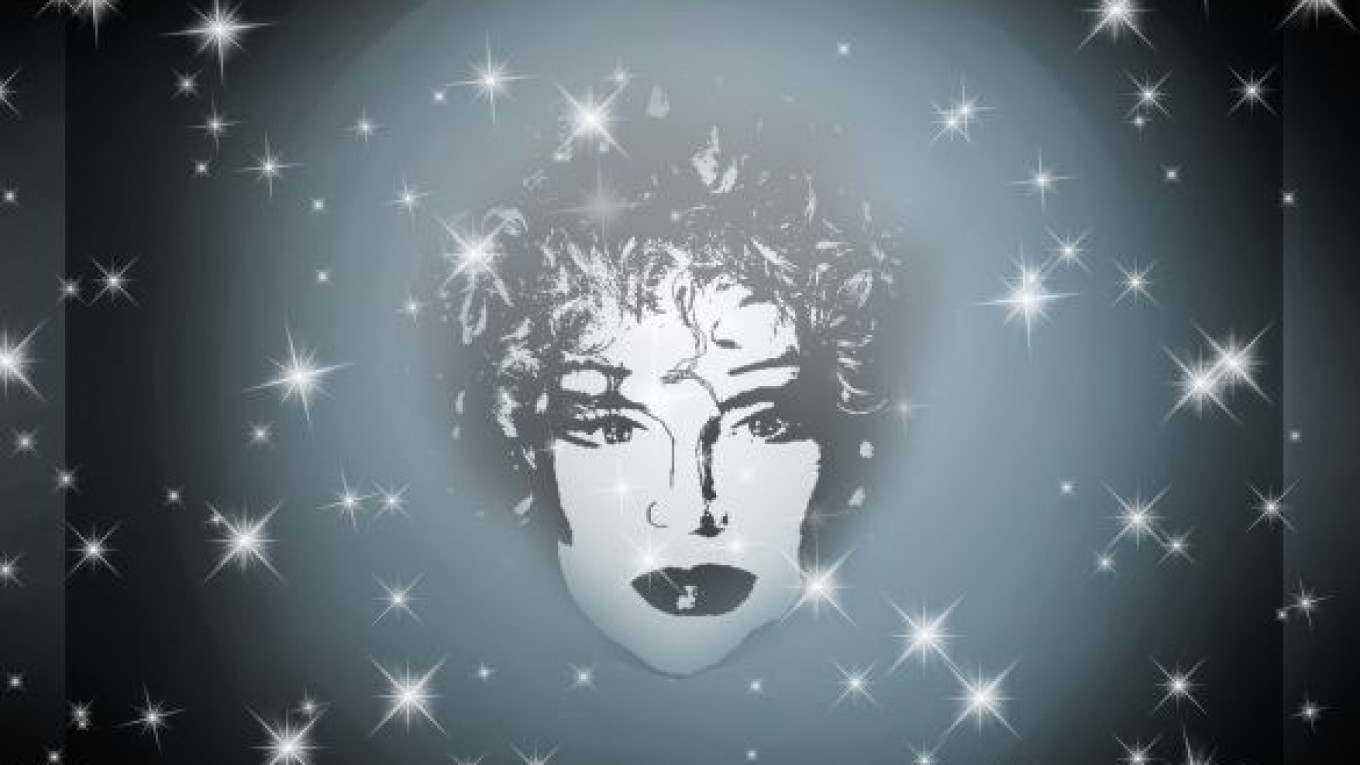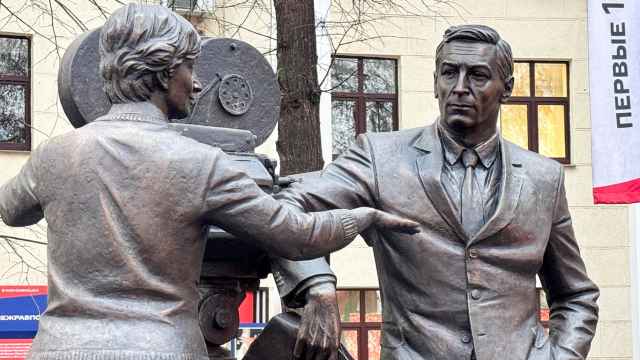This Wednesday, actress and singer Lyudmila Gurchenko died at the age of 75. She was one of the last remnants of a lost era of Soviet stars, who still, amazingly, lived among us. With her over-the-top face-lifts and talent for saying the outrageous, she even became an unlikely gay icon, singing duets with Russia’s only out pop star, Boris Moiseyev.
Everyone remembers Gurchenko playing the girl in Eldar Ryazanov’s “Carnival in Moscow” who sings the song “Five Minutes” about waiting for the New Year’s chimes. Just 20 then, she had pizzazz, a Hollywood-style pretty face and great legs. But something went wrong and the starring roles dried up for decades after that 1956 film. Gurchenko blamed the KGB, saying they punished her for refusing to act as an informer, and said she was blacklisted after naively accepting money in an envelope after a concert, instead of her official wages.
It’s certainly a myth that she was completely dropped from film roles, but she was given second-tier roles in second-rate films, and the Soviet system meant a star could be punished like this.
She talked to Komsomolskaya Pravda about dispiriting concert tours of mines, canteens and prisons, where she would paste a smile on her face and shout “hello, comrades!” In an interview aired on television, she said in Scarlett O’Hara style that her memories of those days meant “I am always cold, and I am always hungry.”
Then she had an unexpected renaissance starting in the 1970s, when she was already in her 40s, with interesting roles that fitted her then, of women whose lives had not turned out the way they hoped but who were able to look back at their former passions with an ironically raised eyebrow.
In “A Railway Station for Two,” she plays a cynical station waitress trained to give as good as she gets from leering men, whose heart is touched by a man passing through. In “Flights in Dreams and in Reality,” another film from 1982, she plays the former girlfriend of a middle-aged man, doomed to work alongside him as he dates younger women, but still ready to take him in whenever he needs her.
Such films had terrifyingly drab expectations of women’s lives, especially if they did not marry, but they gave meaty roles for middle-aged women and, of course, were watched by them in the millions.
Gurchenko’s own life had little in common with her characters, however. She did not quite match Elizabeth Taylor’s record, but married five times, including one short-lived marriage with crooner Iosif Kobzon.
“I had one love, one devotion. It just had different objects,” she said wryly in an interview recently with Life News.
She had one child, a daughter, but their rift and wrangles over property became public through the tabloids.
In recent years, she acted less but experimented with show business, singing a hit song “Peterburg-Leningrad” with Moiseyev, a singer who has openly talked of being gay. By now she had a husky Marlene Dietrich-style delivery and wore black dresses that showed off a still slim figure.
She let interviewer Leonid Parfyonov into her apartment a few years ago, revealing that she lived in the thrall of tiny lapdogs that constantly climbed over her and yapped demands.
No doubt very conscious of the passing years, since she did not fully enjoy the power of her looks when young, she had a lot of cosmetic surgery. Whether elderly Soviet stars patronize familiar, dusty doctors or lack money for good surgeons, I do not know, but sadly Gurchenko had surgery that was extreme butchery, changing the shape of all her features and looking masklike, as was cruelly revealed in her last interview for Channel One, aired Wednesday. But it’s easy to remember her differently.
A Message from The Moscow Times:
Dear readers,
We are facing unprecedented challenges. Russia's Prosecutor General's Office has designated The Moscow Times as an "undesirable" organization, criminalizing our work and putting our staff at risk of prosecution. This follows our earlier unjust labeling as a "foreign agent."
These actions are direct attempts to silence independent journalism in Russia. The authorities claim our work "discredits the decisions of the Russian leadership." We see things differently: we strive to provide accurate, unbiased reporting on Russia.
We, the journalists of The Moscow Times, refuse to be silenced. But to continue our work, we need your help.
Your support, no matter how small, makes a world of difference. If you can, please support us monthly starting from just $2. It's quick to set up, and every contribution makes a significant impact.
By supporting The Moscow Times, you're defending open, independent journalism in the face of repression. Thank you for standing with us.
Remind me later.






